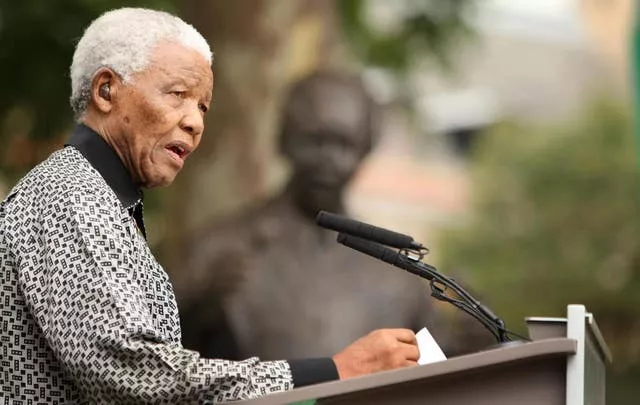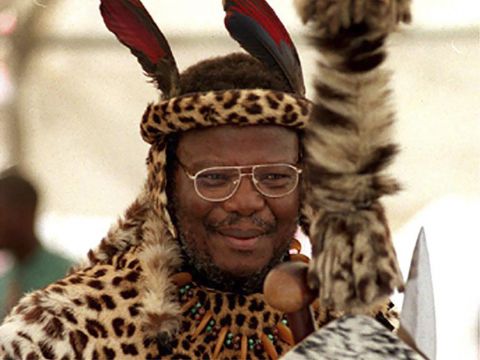Controversial South African politician and traditional minister of the Zulu ethnic group Prince Mangosuthu Buthelezi has died at the age of 95, president Cyril Ramaphosa has announced.
Mr Buthelezi founded the Inkatha Freedom Party, the third largest political party in South Africa when the country transitioned from the racist apartheid system to a democratic one in 1994.
He was admitted to hospital in July following a failed medical procedure to ease back pain, his family said at the time.
“Prince Buthelezi, who served as the democratic South Africa’s first minister of home affairs, passed away in the early hours of today, Saturday, September 9 2023, just two weeks after the celebration of his 95th birthday,” Mr Ramaphosa said in a statement on Saturday.
According to Mr Ramaphosa, arrangements for his mourning and funeral will be announced after consultations with the Zulu royal family.
Mr Ramaphosa said: “Prince Mangosuthu Buthelezi has been an outstanding leader in the political and cultural life of our nation, including the ebbs and flows of our liberation struggle, the transition which secured our freedom in 1994 and our democratic dispensation.”
Mr Buthelezi was part of the late Nelson Mandela’s first cabinet when the latter became South Africa’s first democratically-elected president in 1994.
Mr Mandela appointed him as a minister of home affairs, a position he continued to hold in the second administration of former president Thabo Mbeki.
His legacy has remained a contested one due to the role he played during South Africa’s apartheid era, including heading the administrative region of Zululand, a part of the “homelands” regions that were the cornerstone of the apartheid government’s policy of separate development.
His party was also blamed for the pre-election violence that engulfed the country and the province of Kwa-Zulu Natal before the country’s historic 1994 elections.
Now known as KwaZulu-Natal province, the region was one of the 10 “homelands” created by the white-minority government meant to group black South Africans according to their ethnicity in the country’s mostly rural areas.
These were meant to keep the apartheid system intact by installing so-called “puppet leaders”, leading to Mr Buthelezi being labelled a sellout by liberation movements like the ruling African National Congress (ANC) at the time.
A former member of the ANC Youth League, in 1975 he formed what was later to be known as the Inkatha Freedom Party, an outfit founded on an ideology of Zulu nationalism which he initially aligned to the ANC but later got involved in violent clashes with ANC supporters in the 1980s and early 1990s.

The violence that erupted between Inkatha and the ANC in the 1980s and early 1990s remains one of the bloodiest in South African history and a dent in Mr Buthelezi’s political career.
Many were killed in the clashes which took place in the then Zululand and later spread to areas including the Transvaal, now the Gauteng province.
These culminated in what got to be known as the Shell House Massacre in 1994.
Nineteen IFP supporters were shot and killed by ANC security guards after nearly 20,000 of them marched to Shell House in Johannesburg, which was then the headquarters of the ANC, banned in 1990.
They were opposing the upcoming elections and accused the ANC of undermining Zulu leaders and chiefs.
In the early 1990s, leaders of the apartheid government admitted to funding the Inkatha Freedom Party as they sought to destabilise the struggle against apartheid and what was increasingly looking like a road to the end of white minority rule.
Mr Buthelezi opposed apartheid but his stance on controversial issues regarding the oppressive system put him at odds with ANC leaders.
This included his opposition to international sanctions against apartheid and his support for free markets at a time when most liberation movements were largely socialist and African nationalists.
He remained a lawmaker in South Africa’s Parliament from 1994 until his death and the leader of the Inkatha Freedom Party until he was replaced at its national conference in 2019.







